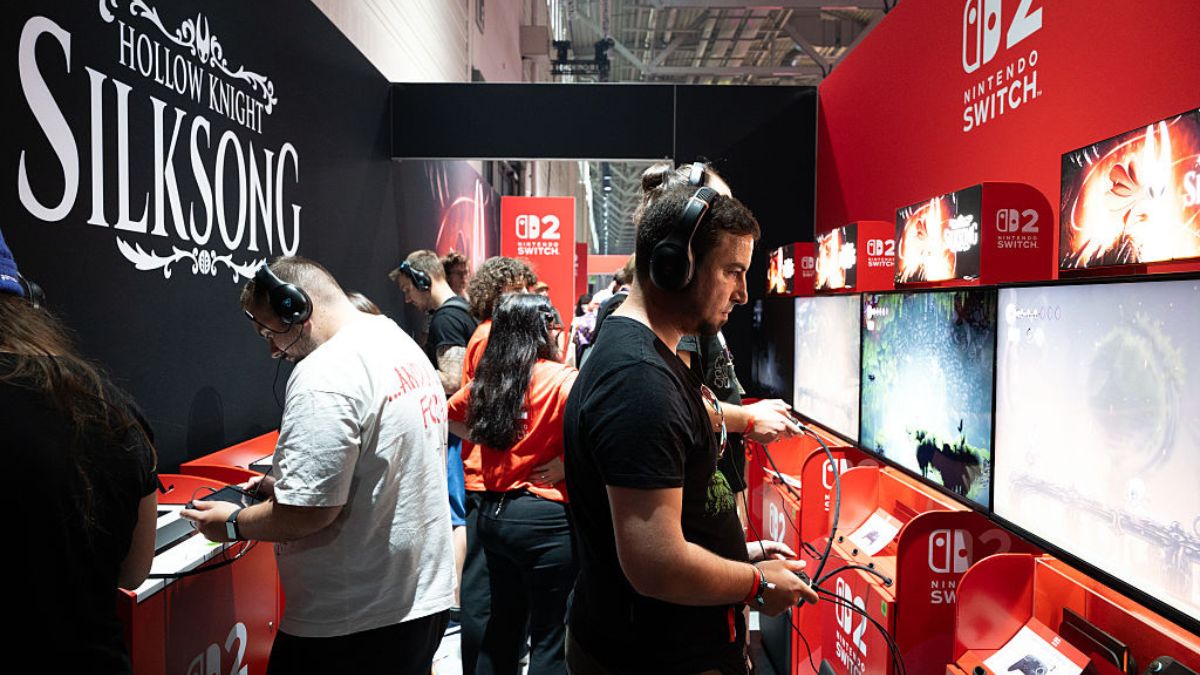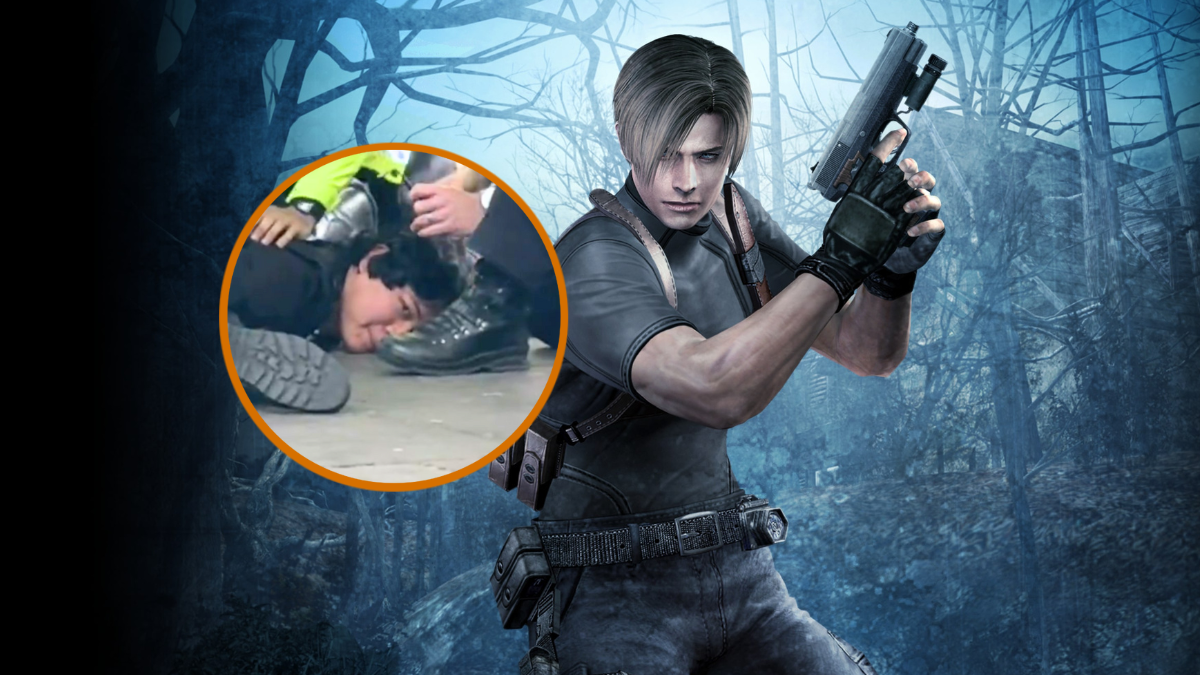
For many gamers my age, it’s easy to harken back to the glory days of 2D fighters. A time when Street Fighter and Mortal Kombat could be found in every mall’s token arcade just waiting to steal that week’s allowance as you tried to prove that you were indeed the toughest kid on the block. While there were a plethora of contenders for the fighting game crown, Killer Instinct definitely stood out. Mixing a similar ferocity and visual style to Mortal Kombat with the speed and twitch reflexes of Street Fighter, the game quickly became a cult favorite.
Unfortunately, once the fighting game fad in the 90s started to die off, Killer Instinct simply vanished. Developer Rare LTD seemed to have abandoned the franchise and many gamers had thought that we had seen the last of the title. When Microsoft announced that the Xbox One would have a Killer Instinct game available at launch that was being developed by Double Helix, I wasn’t very optimistic about its potential. However, after spending some significant time with it, I have to admit that maybe my reservations weren’t completely founded.
Killer Instinct is a 2.5D fighter and its charm relies in its complex combo mechanics. Traditional special moves definitely play a roll here, but they serve mostly as a bridge, allowing you to form even more intricate combinations which result in some absolutely absurdly offensive onslaughts.
Combinations are extremely easy to learn and the basic ones are simple to pull off, allowing anybody to jump into the fray and have a puncher’s chance. As one would imagine, though, the more complex attacks require a bit of dexterity. You’ll have to start each one with an “opener,” which allows you to toss in a few regular attacks before needing a link to keep the combination together, then ultimately using an “ender” to maximize your damage. This system stays the same regardless of your character choice, so it’s merely a matter of learning which moves flow together before you can master a new character.

As you progress through your combo, a “combo limit” meter appears on the side of the screen keeping track of how many hits you’ve racked up as well as putting a hard limit on how long you can keep going before needing to pop an ender if you want to maximize your damage. This becomes a metagame in and of itself, as the bonus for properly ending a combo can result in almost doubling the damage output.
If you’re on the receiving end of a combo, properly timing a “combo breaker” instantly turns the tide and puts you in a position to exact some revenge. To pull one off, you simply need to hit LP+LK, MP+MK or HP+HK, depending on what type of attacks your opponent is using on you. While you’re certain to get some out of pure luck (or the fact that most people seem to rely on medium attacks), guessing wrong will result in you being “locked out,” forcing you to simply eat the rest of the combo.
Killer Instinct has definitely tried to learn from the best in the genre, and two common mechanics have made their debut in the franchise. The first one happens to be “shadow attacks,” which act as EX moves, allowing you to soup up your special attacks with more damage and add that extra “oomph” to a combination. Instinct mode also apes the X-Factor of Marvel vs. Capcom 3 fame, allowing you to regain a bit of health and move just a bit faster. If timed right, it can also extend the length of your combos and cancel out a move, giving you time to set up a manual. It’s all extremely fluid and feels fantastic when you successfully pull everything off at once.
Of course, it wouldn’t be Killer Instinct without “Ultra Combos,” the game’s version of a fatality. Once you’ve whittled your opponent down to 15% of his health, you can pull off an absolutely insane combo, complete with the soundtrack changing to the rhythm of your beat down, the scenery reacting, and the announcer absolutely losing his damn mind. Even when on the receiving end, it’s fun to simply sit back and watch the destruction.
While the controls are fairly intuitive and allow anyone to pick up and play, there’s a fairly robust “Dojo” mode that does a fantastic job of teaching you the ropes. You’ll use Jago (who, not coincidentally, is the only free character right off the bat) as you’re introduced to everything from basic attacks to combo breakers to some fairly advanced extended combinations. Everything is spelled out for you in terms of when you should do this and how it works, and should you complete the entire tutorial I have to think you’d be in a position where you can compete pretty well.

As fantastic as the Dojo is and as outstanding as the fighting mechanics are, the game is extremely barebones elsewhere, leaving me wanting more on almost every aspect. While Killer Instinct is free right off the bat, being limited to one character is a very quick way to get bored of a game. Unlocking characters individually would cost five bucks per head, or you can spend twenty to get all five as well as two more that are set to be released come the new year.
Within those six characters, only one is a newcomer to the franchise, so they may seem like old hat to longtime fans. Sabrewulf, Thunder, Orchid and Glacius all feel fine, but I did find myself missing some of my favorites from the original release. Newcomer Sadira, however, was an absolute blast to play as and as gamers get more accustomed to her she could be the go to character for many.
Outside of a survival mode, where you’ll simply fight opponent after opponent, and the Dojo, there’s no single player campaign to speak of. This isn’t a massive problem since fighting games are usually considered multiplayer centric, but it’s disappointing not to have any options available should I want to play by myself for a while.
The online play seems to vary wildly in quality, ranging from perfect to abysmal depending on the match. The vast majority of my match-ups had very few issues when it came to latency or slowdown, but when they did rear their ugly head it turned the fast-paced brawl into a crawl through the sludge.
One massive oversight on the part of Double Helix was not having the ability to rate your opponents after a match. I’ve lost count of how many people took the coward’s way out and disconnected when the ultra-combo that would end the match finally connected, and with no way of punishing them for their actions, they’re sure to continue this trend with others.
Unfortunately, the matchmaking is extremely bare bones, and while it works for what it is, there’s simply not enough variety available. While other titles are able to roll out tournament options, a spectator mode and more, playing a game that lacks these features feels like taking a few steps backwards.

As stated earlier, the game is free initially and allows you to play through all of the modes as Jago. However, if you want more variety you have to pony up the cash. The $20 asking price for the other characters seemed fair to us, but hardcore fans of the franchise may be interested in dropping $40 for the Ultra version of Killer Instinct.
The Ultra Edition comes with the arcade version of the title (glitches and all), a more refined version of the original that clears up some coding issues, and some additional costumes for the Xbox One version. This is a great bit of fan service as it’s a completely different standalone game, with all 10 original characters, cutscenes, and a few Easter eggs like the all too familiar “Winners Don’t Do Drugs” messages that adorned arcade machines across the nation.
Killer Instinct is a fine game on its own, and there’s no excuse for anyone not to at least check out the free version, but there’s a ton of squandered potential here. I don’t think Double Helix would have ever been able to live up to the standard that hardcore fans hold the game up to, but with so little variety being offered, it doesn’t feel like they really made a strong attempt to try either. Still, as it stands, Killer Instinct is still a blast to play and is priced brilliantly for its offerings. Here’s hoping that Double Helix sees this as an opportunity to run with the brand, leading to the release of a game that is truly deserving of its lineage.
This review is based on the Xbox One exclusive.










Published: Dec 2, 2013 12:35 am